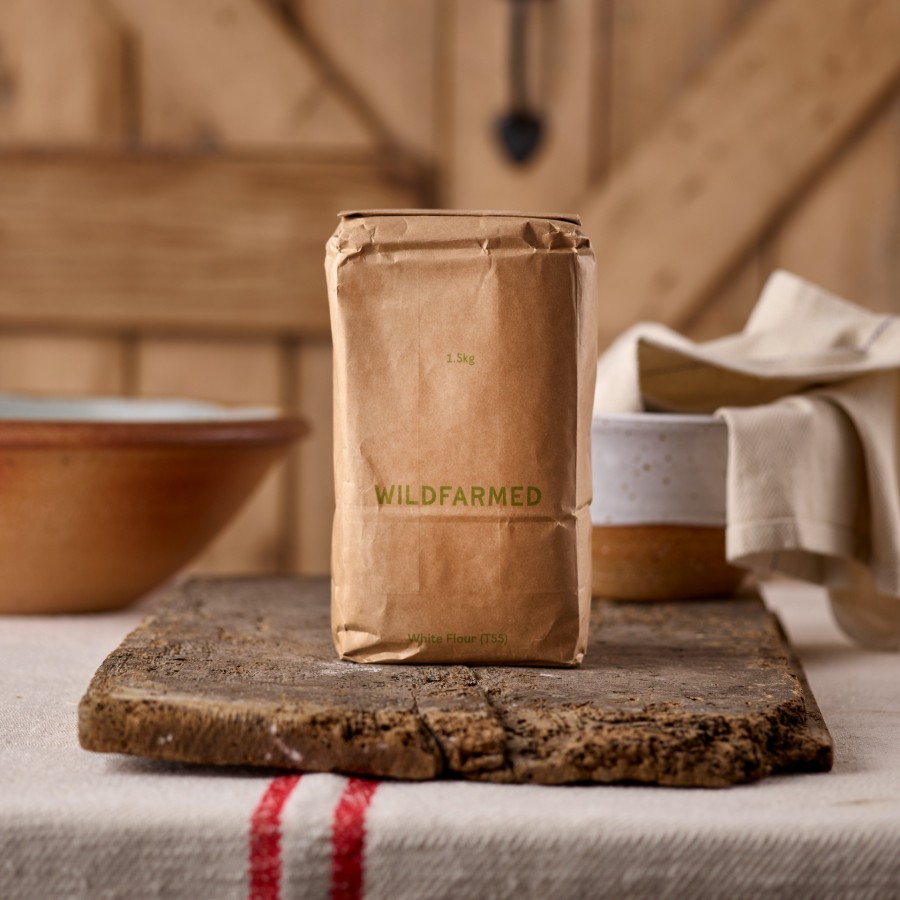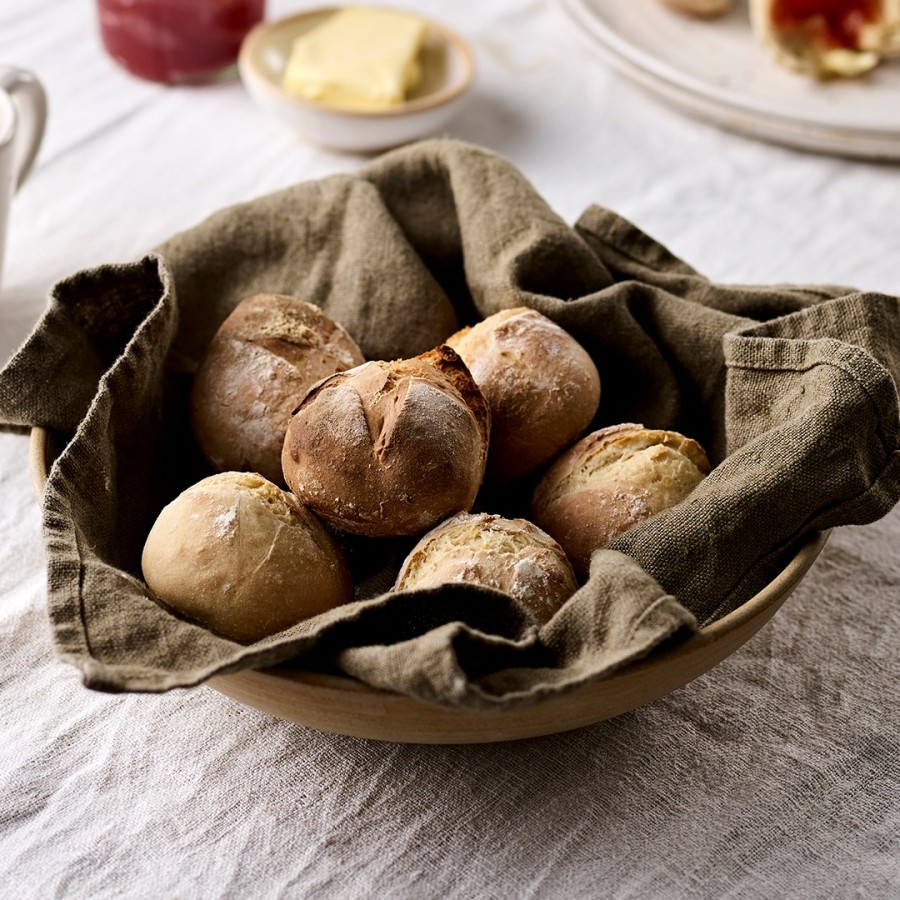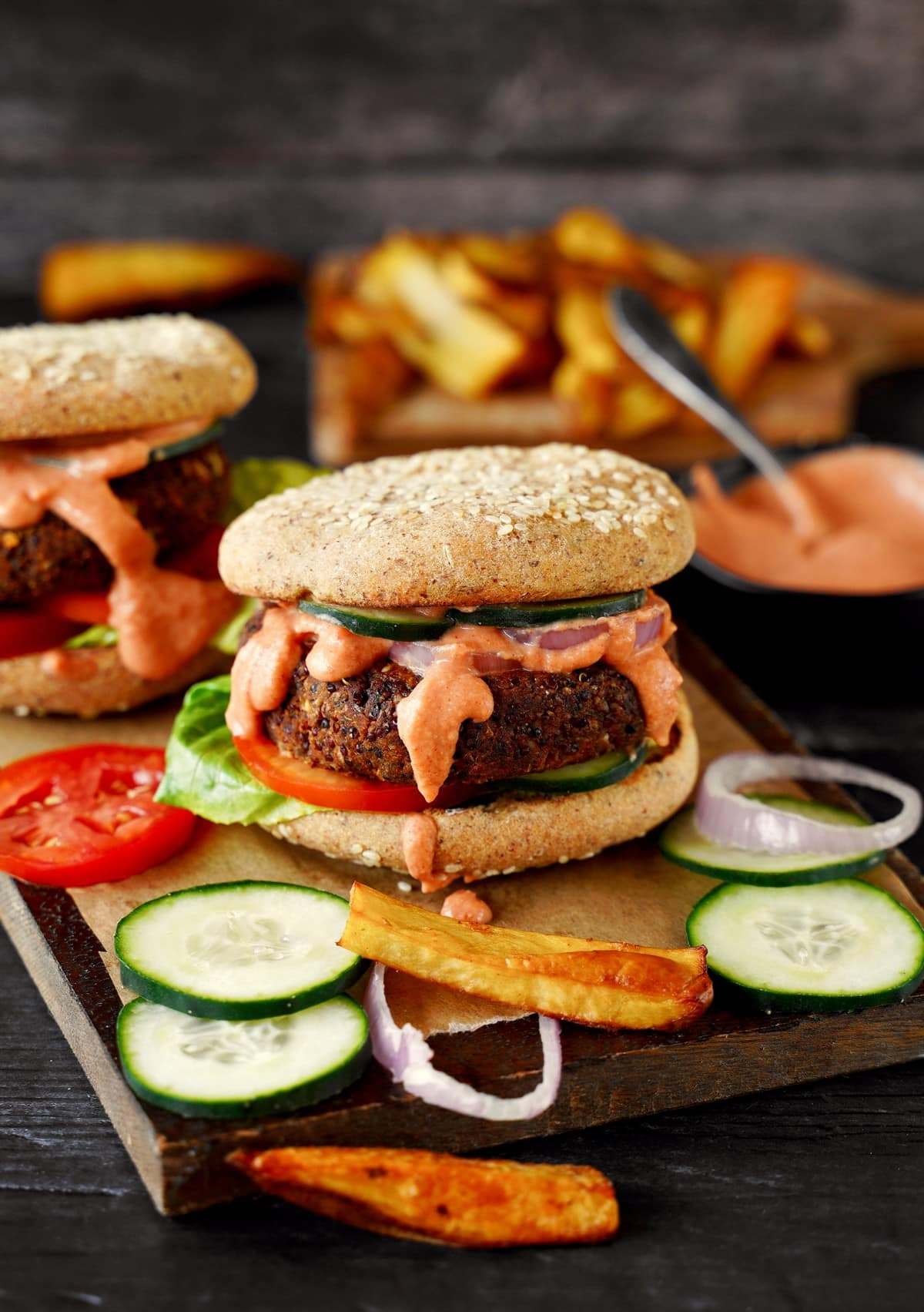Choose Artisan Flours for Better Baking

Artisan flours come from grains that are milled with care, often in small batches using traditional methods. Unlike conventional flours, they retain more nutrients and natural flavours because they aren’t overly processed. They make for much better baking!
Read our post on food safety for people and pets (fresh bread dough, dried fruits and nutmeg are all toxic to pets. Don’t give stale bread to garden birds or wildfowl, as it could choke (and fatty bread can smear on feathers, affecting waterproofing and insulation).
Whole Grain and Heritage Wheat Flours
Heritage wheats like Einkorn and Emmer have been around for thousands of years. They are closer to the original wheat varieties before modern breeding changed most commercial flours.
These grains hold onto more nutrients because the milling process is gentle and keeps the bran and germ intact. This means you get more fibre, vitamins, and minerals in your flour.
Einkorn flour tends to produce a crumb that is tender yet slightly chewy, with a mild, sweet flavour that works beautifully in cakes like carrot cake or banana bread. Its subtle nutty notes add depth without overpowering the other ingredients.
Emmer flour, which is a little heavier, lends a rich, earthy taste that enhances the warm spices often found in these classic bakes.
Gluten-Free Artisan Flour Options
Buckwheat flour has a bold, earthy flavour with a hint of nuttiness. It naturally holds moisture, which helps cakes like courgette cake stay soft and tender. Its dense texture makes it perfect for bakes that benefit from a little heft, such as rich gingerbread. Buckwheat doesn’t rise much on its own.
Chestnut flour offers a sweet, slightly creamy taste that pairs beautifully with warm spices. It adds natural sweetness and keeps cakes moist due to its fine texture. This makes it a favourite in holiday cakes and spiced desserts.
With gluten-free flours, it’s good to mix them with starches like tapioca or potato flour to improve texture and rise. These artisan choices let you bake with confidence.
Enhancing Flavour and Texture
Fruit and vegetable cakes thrive on the harmony of moist, tender crumb and deep flavour. Artisan flours work brilliantly here, amplifying the natural qualities of ingredients like carrot and warming spices.
For instance, spelt flour adds a delicate sweetness to banana bread, enhancing the fruit’s richness without overpowering it. Rye flour’s slightly tangy, earthy character pairs wonderfully with courgette (choose organic for safety)), lending complexity to what might otherwise be a simple vegetable cake.
When baking gingerbread, whole grain wheat or chestnut flours accentuate warm spices like ginger and cinnamon, enriching flavour layers and creating a moister, denser crumb.
Recipe Adjustments and Flour Combinations
- Try blending artisan flours with all-purpose or plain flour at first. A good starting point is 50/50 or 70/30 (artisan to regular flour). This helps keep the crumb light while adding flavour and nutrients.
- Adjust liquid amounts because whole grain artisan flours and gluten-free flours can soak up more moisture. Add extra liquid (water, milk, juice) in small increments — about 1 to 2 tablespoons per cup of artisan flour — to keep the batter moist.
- Pay attention to binding agents. Gluten-free flours like buckwheat or chestnut lack gluten’s stretch. Boost structure by adding flax eggs, or a little extra baking powder or soda to help lift the crumb.
- Mix thoroughly but gently. Artisan flours with bran or coarser grains need enough mixing for even hydration. At the same time, avoid over-mixing to prevent a dense, tough texture.
- Watch baking times. Cakes with artisan flours sometimes take longer to bake because of their moisture retention and density. Start checking 5-10 minutes later than usual but keep an eye on doneness with a toothpick.
Storage and Freshness Considerations
Artisan flours are closer to the whole grain and contain more natural oils than standard white flours. While this means better nutrition and flavour, it also means they can go off faster if not stored right.
- Store in airtight containers to prevent moisture and odours from spoiling the flour. Glass jars or BPA-free plastic containers with tight lids work well.
- Keep flour in a cool, dark place such as a pantry. Avoid heat and sunlight, which speed up rancidity.
- Refrigerate or freeze artisan flours especially whole grain or nutty flours like chestnut and buckwheat. Store them in sealed bags or containers and bring to room temperature before use.
- Label containers with the date so you can track freshness. Use artisan flours within 1 to 3 months for best flavour and texture.
- Smell and look at your flour before baking. If it smells sour or soapy, or shows signs of clumping or discolouration, it’s best to replace it.
Good Brands of Artisan Flours

- Wildfarmed works with 50 local farmers to sell flours made with regenerative farming (rotating crops to increase nitrogen and absorb carbon, so no pesticides are needed, great for wildlife). The range includes wholemeal, countryside (like a light wholemeal) and flours for bread, pizza and flatbread.
- The Prior’s Flour (Cambridgeshire) offers organic flours created by a master miller, ground on horizontal French burr stones to preserve natural vitamin content. This mill is over 160 years old, and stands on a site where mills have worked since the times of Domesday.
- Matthews Cotswold Flour offers organic stoneground wholegrain flours, using techniques handed down by generations since the 1800s.
- Shipton Mill is a renowned organic mill, which is run on renewable energy and offers a fine line of artisan flours. The land is carefully kept natural, to offer homes for native wildlife including otters, kingfishers, damselflies and wild brown trout.

Doves Farm is the main brand to look for in stores, with an extensive range of organic and gluten-free flours and baking essentials (baking soda, yeast).
The organic farm is nestled in the North Wessex Downs and provides homes for bees, birds, butterflies and skylarks, and the company works with other organic growers. It uses solar panels on site and grains are grown using crop rotation to produce quality grains.

This brand was founded back in 1977 when most people would buy a cotton-wool type white loaf from the supermarket.
The couple bought an old stone-grinding mill and began to sell wholemeal flour in bags, and today it offers a range of wholegrain flours including rye, spelt (easier on the digestion) and einkorn along with teff, oats and quinoa flours (also sold in sacks).

There are many types of flours to choose from, and the site has a good guide on which flours to choose for which purpose. The range includes brown rice, oat and quinoa flours (gluten-free).
The site lists simple recipes like 3-ingredient soda bread rolls and seeded loaves for bread machines. Or use their seeded bread mix (just add water & oil, to make one loaf or 8 rolls).
Organic Flour from a London Bakery

Merchants Mills is a quality brand of artisan flour, made with organic ingredients at a London bakery. Founded by two foodies. This flour is made with raw organic grains, just a few steps away from the River Thames.
The range includes:
Stoneground Unbleached White (an all-rounder from a quick focaccia to a sourdough loaf).
- Stoneground Spelt Flour (makes a great bread loaf or combine with the flour above, for a soft crumb and crunchy crust). The light spelt flour makes a good pain de campagne.
- Wholemeal Wheat Flour is full of flavour and nutrient-dense, great to make sourdough bread and pizza. Plus the company make a sourdough flour from rye and spelt. The Light Rye is ideal for muffins, pancakes, bread and waffles.
- Stoneground Rye Flour is super-tasty, and uses traditional stone-grinding methods.
- Nordic Mix is made from spelt and rye, and ensures a nutty flavour with a slightly higher water ratio.






